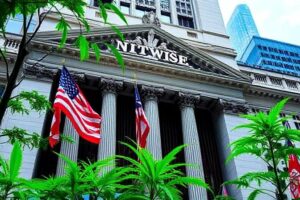
Sora Ventures has officially announced the launch of Asia’s first dedicated Bitcoin treasury fund, setting a bold target to acquire $1 billion worth of BTC within the next six months. The announcement was made during Taipei Blockchain Week, highlighting Asia’s growing appetite for large-scale Bitcoin adoption.
$200M Kickstart for a $1B Ambition
The fund begins with an initial $200 million commitment from regional partners and investors, providing a strong foundation for its ambitious $1B target. According to Sora Ventures, the initiative aims to expand corporate adoption of Bitcoin across Asia by creating a network of companies utilizing BTC as a treasury reserve asset.
Building on Previous Bitcoin Treasury Investments
This is not Sora Ventures’ first step into the Bitcoin treasury space. Last year, the firm invested in Japan’s Metaplanet, supporting its ¥1 billion (around $6.5 million) Bitcoin allocation. Since then, Sora has expanded into other Asian markets by backing Moon Inc. (Hong Kong), DV8 (Thailand), and BitPlanet (South Korea) — all firms exploring corporate Bitcoin strategies.
Asia Joins the Global Bitcoin Treasury Movement
For more than a decade, corporate Bitcoin treasuries have been dominated by U.S.-based firms, with companies like MicroStrategy leading the charge. Sora Ventures’ new fund signals a shift, positioning Asia as a serious player in institutional Bitcoin adoption.
“This is the first time Asia has seen a $1 billion commitment toward building a treasury network of Bitcoin-focused firms,” said Luke Liu, Partner at Sora Ventures.
Regional Momentum Continues
Momentum across Asia is growing, as shown by Metaplanet’s recent shareholder approval to issue up to 555 million new shares to finance additional Bitcoin purchases. With holdings surpassing 20,000 BTC, Metaplanet is now the sixth-largest corporate Bitcoin holder globally.
Final Take
Sora Ventures’ $1B treasury fund represents a major milestone for Asia’s crypto ecosystem. If successful, it could accelerate Bitcoin’s role as a corporate reserve asset in the region — potentially reshaping how institutions in Asia approach long-term capital allocation.







